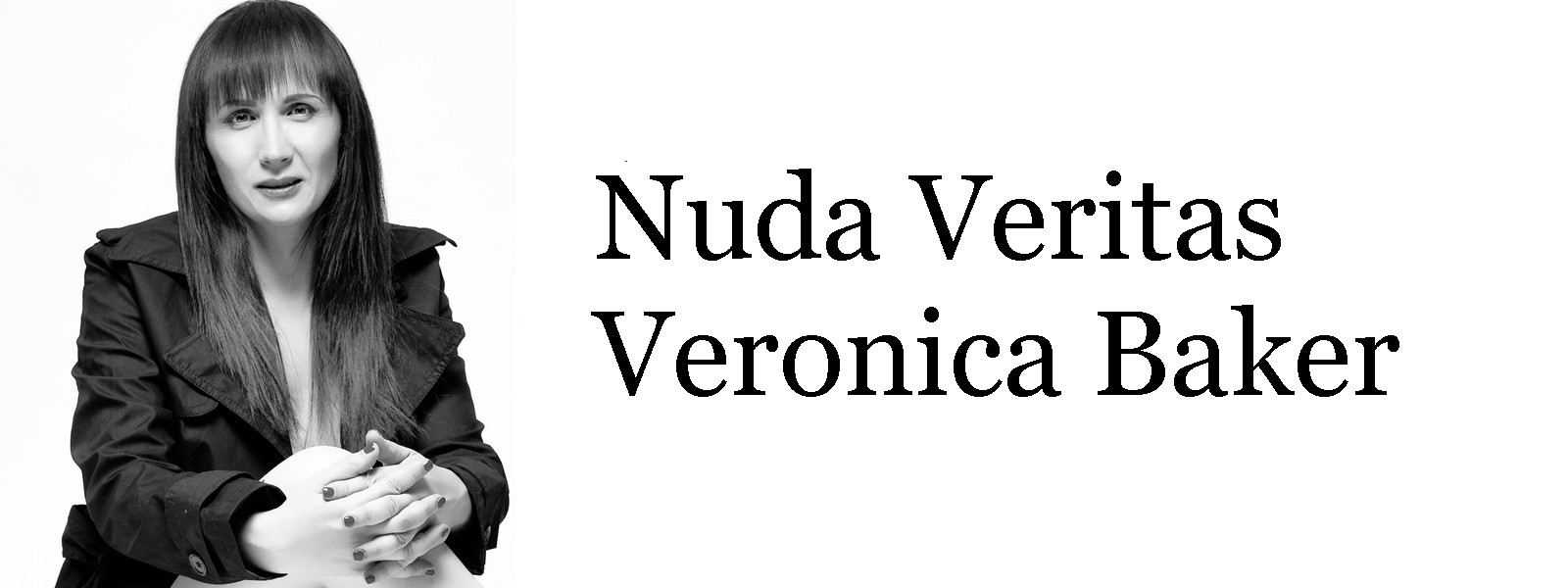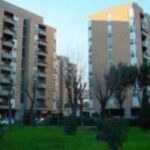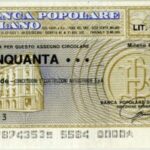December 19, 2024 EcoAnemia, Great Reset
In Milan, everything was regulated by money.
In bars, for example, people would say “cappuccio” for “cappuccino” to save a few syllables.
Milan microcosm of EcoAnemia
I know the hinterland of Milan very well.
For years I have been observing, day after day, the state of what was once Italy’s economic and, in some ways, cultural capital.
Milan (but the same reasoning could be applied to the vast majority of Western European metropolises, and certainly to most Italian cities) is practically dead, having fallen ill with some incurable “diseases” that can be summed up in one word : EcoAnemia.
Contempt for work and those who work
Although the inhabitants of Milan continue to flaunt a “working” figure, since the beginning of the 1990s a mentality has developed in Milan that completely despises those who “get their hands dirty”.
The term “work” is no longer synonymous with “building”, but with “managing”.
Managing is the activity of those who, on the one hand, suppress any ambition for excellence so as not to betray their mediocrity and incompetence.
On the other hand, it is an undefined professionalism that consists in wearing a tie, speaking an incomprehensible language and talking on the phone about things that have already been discussed.
In Milan today, those who make things, those who build things, those who realize things, are considered poor idiots.
The real hero of the city, the model local worker, is the one who manages (for friends, a manager), the only one who can aspire to a permanent position.
The one who can manage is the one who will make a career.
If you are good and they offer you the chance to make a career, they will not offer you more challenging, bigger or more complex assignments in Milan.
They will offer you to start managing.
Management is a three-step activity :
Mortification of those who can do, in favor of those who can communicate and present themselves well.
In Milanese slang : “sucking up” to someone who will get you ahead.Defamation of those who can, in favor of those who cannot.
There must be no one who can expose the incompetence of those who manage.One must cause the dismissal and expulsion from the productive reality of those who can do.
It is not positive enough, that is, it does not always say yes to those who manage.
This transformation of the concept of work has led to the departure of every truly qualified person.
Today Milan does not have the human resources, the skills or the competences to achieve even the most modest results.
By despising those who do and favoring those who manage, the city has emptied itself of all human talent, remaining a realm of well-presented and highly communicative mediocrity that now informs.
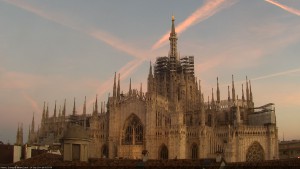
All these “administrators” are in trouble with the end of permanent contracts.
It is no longer possible to work in Lombardy without resorting to atypical contracts.
Gone is the flow of human talent that used to be attracted by the possibility of working in Milan.
Gone are the permanent jobs, the southerners and, in general, all the immigrants who used to be attracted to the city no longer consider it attractive (except, of course, the delinquents and the idlers).
The flow of human talent to “manage” has stopped.
The “talents” that had previously stopped have moved elsewhere or have retired over time.
All those experts who used to be able to manage a huge capital of performance skills now find themselves “managing” companies that struggle to get simple things done.
Only the wafflers remain in Milan.
If in the past the wafflers were able to hide their incompetence thanks to huge masses of workers who let themselves be managed in exchange for a job, today that job is no longer there, the tap is closed.
And the truth emerges in all its bitterness.
The city of design and fashion has overflowing subways, it cannot even manage the Ferrovie Nord properly if it were privatized.
Initially, when the city still had capital, it turned to outside companies.
But these “managers” ran out of money and began to use only local resources.
We can see the results.
The Church (Catholic Church)
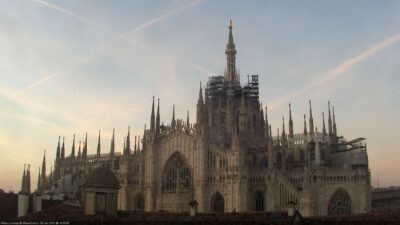
An evil and cancerous entity has settled in the former metropolis.
The church (lower case), which identifies itself with an economic model : misery, ignorance, alms, humiliation and complacency.
It always tries to impose the same model everywhere.
Where it is strong, the economy can only degenerate into an expanse of misery, ignorance, superstition, violence and servility.
It represents hope in the only way that increases the despair around it.
This is its model of pietas : it stands as a mediator between a high and unattainable world and a mass of doomed wretches and sinners to whom it distributes divine pity.
His economic model is an expanse of the damned poor and a dome of the rich, between whom he mediates (through works of charity and almsgiving).
The first thing the Church does when it becomes stronger is to invest in bricks and mortar, immobilizing money and producing higher prices.
At that point, many people, attracted by the rise in prices, begin to invest in bricks, again immobilizing capital.
This sets off a chain reaction that wipes out liquidity in a very short time.
The transfer of capital to real estate immediately caused the collapse of the industry and reduced the size of the artisan sector, which increasingly tended to become a brokerage business.
Its strengthening in Lombardy, and especially in Milan, has marked the drying up of liquidity initially committed to development.
Today, if you ask someone in Milan what “capital” they have, they will tell you that they own real estate.
But no one will point out that real estate, by definition, is not “liquidity”.
Once wealth is immobilized in bricks and mortar, the lack of liquidity kills the rest of the economy, leaving only brokers and banks.
Sometimes the rest stay in town, but move their activities elsewhere.
The Public Prosecutor’s Office of Milan
Milan once boasted an economic elite capable of shaping the city and laying the foundations for its future.
Such an elite, however, was terrorized by Mani Pulite.

Although the investigation mainly involved politicians, the Argentinean methods used to conduct it (illegal wiretapping, use of pre-trial detention as a form of torture to extract confessions, use of the press as a tool for lynching) caused the entire ruling class to flee.
Very few big businessmen now do business in the city.
Even if they live there.
For years now, the few remaining big businessmen (monopolists), when they want to discuss something, take a plane and go to speak away from the microphones of the Milan prosecutor’s office.
They meet abroad, even if all the participants are from Milan.
Business has left the city for fear of the inquisitors.
On the other hand, the cancerous monolith of the Prosecutor’s Office has willingly taken the place of the old elite.
If any “business” is done in the city, it is known in the courthouse.
Those who have all the investigative tools at their disposal (and without limits) can know everything.
Thus, if any “business” is made, it is necessary that some judge, or some of his relatives, be present at the table (they are called extrajudicial missions : examinations, arbitrations, consultations, expert opinions) and take his piece of the cake.
Otherwise, the investigation will come right on time.
Milan’s new business elite is made up of judges, judges’ relatives and judges’ friends.
There is no big “deal” that does not go through the deputy channels and receive the approval of the public prosecutor’s office.
But judges are not businessmen : they do not create capital or businesses, but simply enter, personally or otherwise, into every juicy deal in the city, whether it is a merger of companies or a simple bankruptcy.
Nothing happens without paying a duty to the Public Prosecutor’s Office.
Malignant bigotry
The Milanese of today is, in essence, an evil being.
He enjoys the suffering and frustration of others.
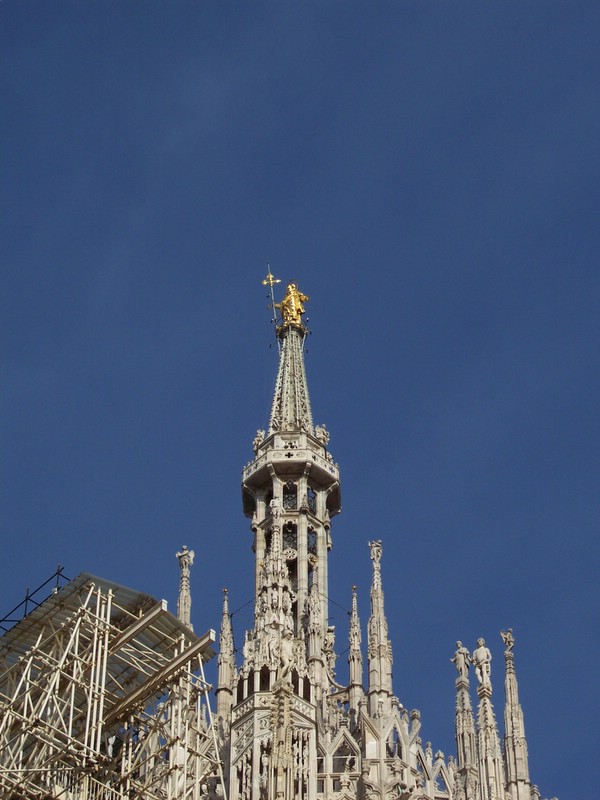
Exercising some form of tyranny, preferably supported by a mass of like-minded people, is his highest aspiration.
Even better if it is done under the banner of a very high value.
The worst insult you can do to this city is to be happy.
In fact, Milan is the only city in Italy (and perhaps the world) where shopkeepers do not smile at customers.
Try to walk around the city without an angry, worried or blank stare.
You will be taken for an idiot.
The worst crime you can commit in Milan is to be happy without hurting anyone.
A form of competition from which someone emerges inferior or humiliated, the display of wealth.
They hate and detest everything that is joy, entertainment, spectacle and culture.
All this they do not understand.
Any form of entertainment is too loud, too obscene, too much, in short, as long as some Milanese can find an excuse to ban it.
There is no cultural initiative that does not cause controversy.
This is followed by the inevitable ban or censorship by the authorities.
Organizing anything that can be considered leisure, culture or entertainment is so difficult because it has to go through a thicket of censorship and at the end of the war of cross vetoes, something insulting, empty, old, distorted and limited will emerge.
The only opportunities for leisure, the only opportunities for entertainment and culture in Milan are the opportunities for ostentation.
If you can flaunt your social status, fine.
Otherwise there is no fun.
Milan will never revive itself.
Those who know how to do something and love to do it will leave as soon as the usual “Milanese” arrive.
P.S. I am a native of Milan (but happily “emigrated” since 2016).
